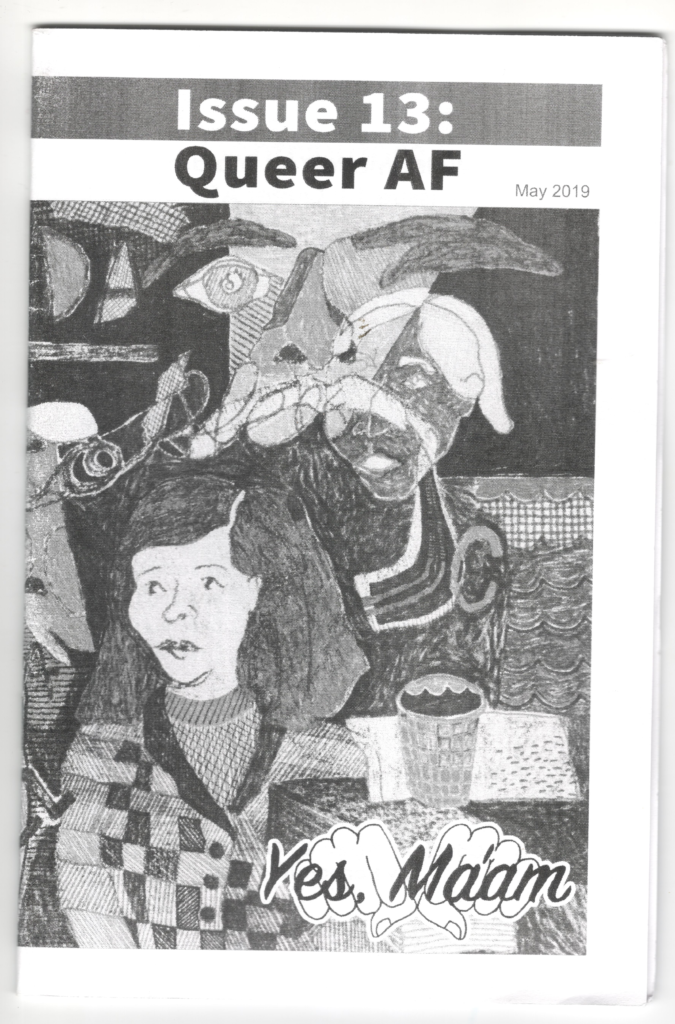 Yes Ma’am #13: Queer AF
Yes Ma’am #13: Queer AF
Zine, Elle Minter and Suzy González, 48 pgs, Yes Ma’am Press, yesmaampress.com
Submitting to a zine anthology takes guts. Contributors must be confident in their understanding of the subject matter and their ability to unpack it. This issue of Yes Ma’am, a long-running feminist zine based in San Marcos, TX, provides a welcoming platform for contributors to express queerness in a variety of ways.
Yes Ma’am #13 is a black and white, digest size zine with poetry, illustrations and works of non-fiction from a range of queer folks. The cover includes an eye-catching multimedia piece from artist Hannah Jeremiah recalling 1990s-era riot grrrl aesthetics. Were it not for the “May 2019” displayed in the top right-hand corner of the front cover, you might actually mistake this for a reprint of a decades-old project.
True to the anthology format, this zine includes a range of styles, art and writing levels. For readers interested in the lives of queer people, there is something in this zine just for you. Noteworthy pieces include “an olfactive history of myself at 30 to check in with when I’m 60” by Carter Weeks Maddox, who writes in a playful cadence: “before I was gay, before I knew that I was gay, before I was called gay, I loved perfume.” I also appreciated the directness of “Growing up Queer in Texas” by Victoria Garcia-Zapata.
However, though this and a few other pieces were difficult to follow as a result of poor formatting. If only the text been justified and a space added between paragraphs! Likewise, Linda Mota’s two-page comic, “A Love Letter to You” looks rather spooky and good, but a low image resolution makes it unreadable. “Dear Ira” by Elle is a letter from a non-binary dad to their child explaining why the non-binary parents are raising the child genderless. One response to the authors own question of “why the hell are we bothering with this?” reads particularly poignantly: “[t]he most obvious (and I think impeachable) reason is that, with all the clearly gendered signals you’re going to pick up from the outside world, we don’t want to be one of the reasons a possibility is closed to you.”
Despite some formatting issues, this combination of poetry, prose and artwork make for a provocative zine overall. Kudos to Elle Minter and Suzy González for focusing on the lived experiences of queer people instead of trying to define queerness.
